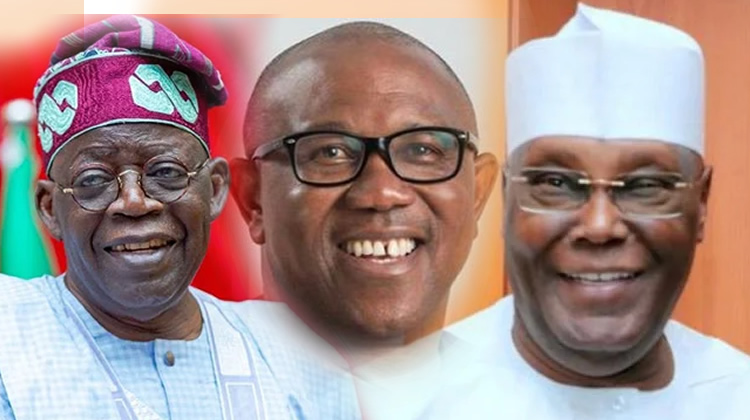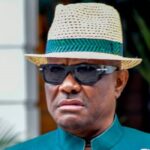The All Progressives Congress, (APC), has said that Alhaji Abubakar Atiku failed to provide credible evidence to substantiate his allegation that the presidential election was rigged in favour of President Bola Tinubu.
The APC has also said that Mr Peter Obi and the Labour Party’s evidence against President Tinubu was minuscule and deficient in credibility.
Both Atiku and Obi and their parties dragged the Independent National Electoral Commission (INEC) before the Presidential Election Petition Court (PEPC), challenging the victory of Tinubu at the Feb. 25 presidential election.
The APC in its final brief of argument filed at the court through its team of lawyers led by Mr Lateef Fagbemi, SAN, argued that Atiku and the PDP were not entitled to any of the reliefs they were asking for in their petition.
The APC held that the petitioners only dumped documents on the court and claimed that such documents were enough evidence to prove their allegations.
The party further argued that the petitioners failed to demonstrate or link the documents to specific allegations they raised against Tinubu’s victory.
According to the APC, it is not enough to merely identify exhibits without making the added effort to demonstrate their relevance by correlating them with witnesses adopted depositions.
“On the effect of the dumping, we urge your lordships to hold that all the documents have no probative value.
“The fact that the documents were tendered by learned senior counsel for the petitioners from the bar makes the case even worse for them.
“The duty is not on the judge to retreat to his hallowed chamber and engage in the cloistered examination of the documents that were dumped before him in the open court,” the party said.
The party further argued that the allegation of the petitioners that the election was rigged, was not tied to any specific polling unit in the local government areas of each of the 24 states whose elections they challenged in the petition.
They said that the petitioners made blanket allegations and that some of the allegations were criminal in nature.
“The law required that they should be proved through cogent, credible and reliable evidence.”
The party insisted that most of the exhibits tendered by Atiku were not relevant to the petition since they were not pleaded or set out any relevant fact.
“Aside from the allegation of non-qualification that the petitioners raised against the respondent, all other allegations in their petition are supposed to be set out on polling unit basis or proved beyond a reasonable doubt.”
The party submitted that the case of the petitioners must fall like a pack of cards and prayed the court to dismiss the petition and uphold the election of Tinubu.
On the educational qualification of the president, the party argued that the exhibits tendered in court only established that he indeed attended Chicago State University in the United States and graduated with honours.
The party also held that the petitioners failed to produce the genuine certificate from which the alleged forged certificate was made.
On the alleged forfeiture of 460, 000 dollars following his alleged involvement in a drug-related case, the APC said there was no evidence that he was ever charged, convicted or fined for any criminal case.
The party held that there were no criminal proceedings or pronouncement of a verdict of guilty against Tinubu to warrant his disqualification.
On the allegation of dual citizenship, the APC argued that his possession of a Guinean Passport was not sufficient grounds to disqualify him from contesting or nullifying his election.
The APC held that the president was a bona fide Nigerian by birth and not by registration or neutralisation.
“A Nigerian-born citizen does not lose his citizenship as a Nigerian or his right to vote or be voted for in an election in Nigeria by acquiring dual citizenship of a second country.”
Moreover, the party held that Tinubu’s sole witness had testified to Tinubu’s Nigerian citizenship.
The party held that the petitioners’ submission that Tinubu did not secure 25 per cent of votes cast in the Federal Capital Territory, FCT, Abuja, in the presidential election was pedestrian and preposterous.
“The FCT does not enjoy a special status as a constituent unit or a state under Section 134(2) (a) and (b) of the 1999 Constitution, as amended.
“Abuja voters have no veto power to singularly hang the outcome of a presidential election that is otherwise conclusive, simply because a candidate did not poll or secure at least one-quarter of votes cast in the FCT in a presidential election.
“We submit that there is equality before the ballot.”
The court on July 4, concluded the hearing in Atiku’s petition as the respondents closed their defence.
Atiku and his party, who came second in the election, approached the PEPC, asking the court to nullify Tinubu’s election and withdraw the certificate of return he was issued.
Atiku and the PDP called 27 witnesses as against the 100 they had said in the pre-hearing report that they would call.
For his part, Obi called in 13 out of the 50 witnesses he has planned on calling and tendered a plethora of documents including over 18,000 blurred results sheets on which INEC based its declaration of Tinubu as the winner.
The Independent National Electoral Commission, (INEC), the first respondent in the petition, called a lone witness just as President Tinubu also called only one witness.
The APC, however, said that it found no reason to call any witness, saying there was no point whipping a dead horse. (NAN)

 Join Daily Trust WhatsApp Community For Quick Access To News and Happenings Around You.
Join Daily Trust WhatsApp Community For Quick Access To News and Happenings Around You.


